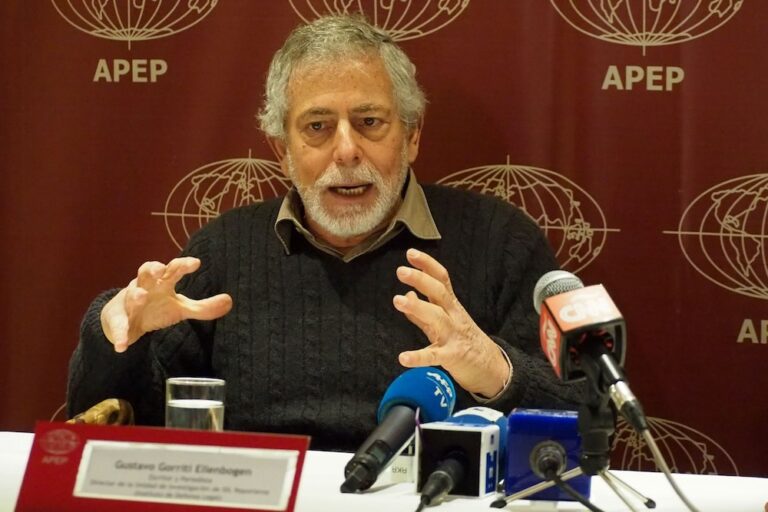(CPJ/IFEX) – CPJ expresses its support for the legislation introduced on 24 February by Carlos Torres y Torres Lara, President of the Congress. The legislation affirms the right of any person in Peru to practice journalism without a license. It is CPJ’s view that restricting the exercise of journalism to those who have a license […]
(CPJ/IFEX) – CPJ expresses its support for the legislation introduced on 24
February by Carlos Torres y Torres Lara, President of the Congress. The
legislation affirms the right of any person in Peru to practice journalism
without a license. It is CPJ’s view that restricting the exercise of
journalism to those who have a license represents an abrogation of freedom
of expression, a right guaranteed by Article 2, paragraph 4 of the Peruvian
Constitution. CPJ says the elimination of the law that requires Peruvians to
have a professional degree and a license in order to practice journalism
would not only help to safeguard freedom of expression in Peru, but would
bring Peruvian law in line with international norms, including the American
Convention of Human Rights, which Peru ratified in 1978.
**This alert provides new information and updates IFEX alerts dated 16
February 1998 and 21 November 1997**
In recent weeks, CPJ has been following with grave concern the case of Ruben
Zurita Vilela, who was sentenced in October to one year in prison for
contempt of court and practicing journalism without a license. Although
Zurita was released from prison on 17 January, he was barred by the judge in
the case from practicing journalism during the rest of his sentence. The
sentence was based on Article 2 of Law 23221, which states that,
“membership in the
association of journalists is an indispensable requirement for the practice
of journalism (la colegiacion es un requisito indispensable para el
ejercicio de la funcion periodistica).”
CPJ concurs with Resolution number 09-08/DP, issued by the Ombudsman’s
office (the Office of the People’s Defender, or Defensor del Pueblo) on 19
February 1998, which concludes that this requirement violates freedom of
expression, guaranteed in Article 2, paragraph 4 of the Peruvian
Constitution. Furthermore, the application of this statute, as noted in the
resolution, clearly violates Article 13 of the American Convention
of Human Rights. CPJ points out that in a 1985 advisory opinion, the
Inter-American Court of Human Rights ruled that requiring journalists to
obtain a license or professional degree in order to practice their
profession inhibits freedom of expression and therefore subverts the rights
enumerated in the convention.


